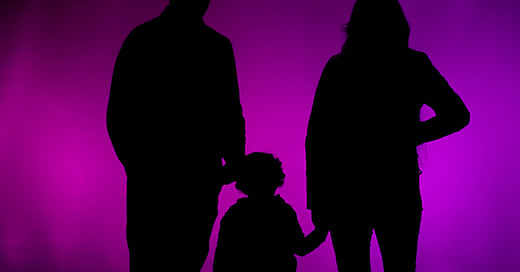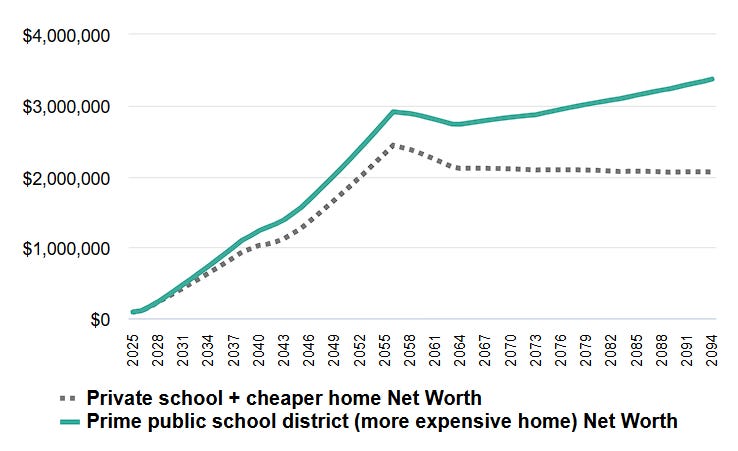My go-to icebreaker fun fact for many years was that I had been to 12 different schools by the time I graduated high school. Over 12 years of education (I left/skipped 6th grade), I went to 12 schools. I went to private Catholic schools and neighborhood public schools. I went to a charter school and a Magnet school. I was homeschooled for a few years here and there. About half of the school changes were driven by re-location, but the other half were because the school I went to sucked (to put it kindly).
As a parent now thinking about the impending choice of where to send my own kids to school, I don’t want to rely solely on my own experience to color my decisions. I graduated from high school over a decade ago. Since I attended charter school, NC has lifted the cap on charter schools (one hundred were allowed in the state and five maximum in a district) and added more than 100 charter schools. Since I went to private school, tuition has ballooned, generally outpacing inflation (though it’s highly variable). Vouchers are a thing in many places. Housing costs have shot up, especially in the best school districts. In other words, it’s a bit of a different landscape.
It’s also a landscape we know more about on a policy and population level. Even considering school choice is a privilege that lower socio-economic families often don’t have. Vouchers aren’t benefiting those with the most need. Charter schools often don’t have transportation or other services, and have been shown to have mixed results. In some underperforming urban districts, there is evidence that they bring about academic gains. In rural areas, especially, public schools are essential community infrastructure, and the loss of resources from children attending alternative schools is felt. All of this is highly district and even school-dependent, though. Fortunately or unfortunately, what is right for our family (or yours) isn’t described by population-level statistics.
What does school choice have to do with financial planning?
If you have kids, where you send them to school will shape your life for years. If you have choices, considering them and their impact on your time, energy, and money is worth considering. How far away is the school? Is there transportation provided that you would want to access? How’s the school safety? What costs are associated with the school?
School choice also has a significant interplay with housing. Moving to a better school district may be worth it, as most public schools are still funded with a large portion of revenue coming from local property taxes (“On a national basis in 2020–21, revenues from local property taxes comprised 36 percent of total revenue for public schools.”).
Comparatively, a K-12 private school costs a little more than $15k per year. This is highly variable, and religion-based schools are typically less. Some private schools cost more than University tuition. You can see why living in a top school district might be cheaper.
A comparison: private school with cheaper housing vs public school with more expensive housing
I ran some comparisons given our family with two kids, the average tuition of 15k per year for 13 years, and the typical home prices near prime public schools vs somewhere where I would be looking for alternative school options. Interestingly, we had more discretionary spending in the private school scenario, but greater net worth over time (with a good chunk tied up in a primary home) in the public school scenario.
To me, this illustrated a few things, namely that even the financial cost will be highly specific to the choices you have in front of you. It’s also not an apples to apples choice. You could choose to buy a smaller home in a better school district. You could choose to rent. You could realize that the perfect school does not exist and go with something that suffices.
What are you actually choosing?
As a wise friend working in education pointed out, sometimes school choice is a bit of an illusion. You will never have control over your child’s learning experience. There are good teachers and bad teachers in all types of schools. To quote her directly, “No matter how much money you have/ want to pour into education, how much research you do, or how perfect the school is, your child will have uncomfortable growing experiences.” In other words, there is no perfect choice, and every choice will have tradeoffs.
Some of those tradeoffs are measurable (like the financial tradeoffs), but others are hard to quantify and even grasp before you are a part of the school. Schools also change over time. You can have some say as an involved parent, but a lot is out of your control at the end of the day.
So what do I do?
I’ve already got Niche and Reddit’s opinion on schools and will probably tour the handful in neighborhoods we like. School choice is only one part of our lives and our kids’ lives, so we’re trying to balance living in the community we want and can afford with providing a good education for our kids. We’re not seriously considering private school, given that we have the option to live where there are decent public schools and value local public schools.
What is important to you will be different than what’s important to me. Even though so much is unknown, you can still make intentional choices and measure what you can - i.e., the financial impact of your choices.
1:1 financial planning
Personal finance is personal. I can only be so nuanced in writing on the internet. Your situation and your questions may not be addressed, or they may need more attention. That’s the beauty of 1:1 planning.







Really enjoyed reading this. As someone with an elementary-school-aged kid, I'll add that things can change A LOT once they're actually in school. You can move to a great school district and then figure out your kid has a learning disability and needs additional support, or the administration changes and you don't like the direction the school is going in. You almost have to prepare for ALL the scenarios and then hope for the best and try your hardest to be flexible.
Taylor, this is an interesting perspective I have not seen discussed elsewhere. You make some great points.